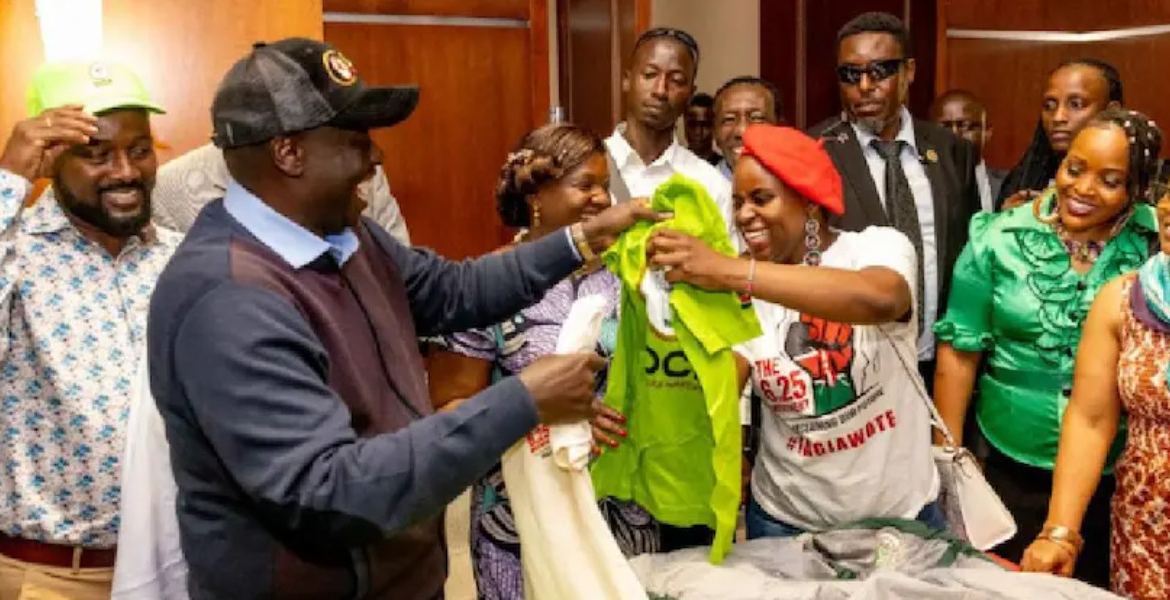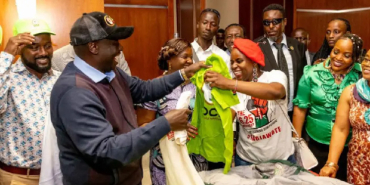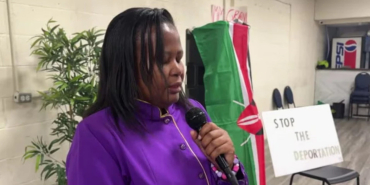Wanjiru Explains Her Viral Moment with Gachagua at US Engagement Forum

Kenyan-born activist based in the United States has launched the 6.25 Movement, seeking to address entrenched ethnic divisions in Kenyan politics and amplify the voices of the country's younger generation.
Valentine Wanjiru, a political science graduate, initiated the movement to honour the spirit of recent protests and challenge what she describes as the exploitation of tribal identity by political elites. Wanjiru's activism gained traction following a public exchange with former Deputy President Rigathi Gachagua during his US tour, an event which highlighted her burgeoning influence among diaspora youth.
Her critique focuses on the persistent use of ethnic lenses in framing national issues, a practice she argues undermines democratic advancement and economic progress. According to Wanjiru, the movement’s name, 6.25, references the date of these historic youth protests in Kenya. It aims to galvanise young people in the diaspora to advocate for greater transparency, inclusivity, and systemic reform in Kenya's governance.
Wanjiru stresses the need for political leaders to engage meaningfully with the youth, or risk alienating a generation increasingly disillusioned with traditional political structures.
"We should all be proud of where we come from," Wanjiru said, "but when culture is used to exclude others, it ceases to be a unifying force."
Wanjiru’s personal experience at Gachagua’s diaspora engagement event in the US acted as a catalyst for her activism. She recounts entering a room dominated by Kikuyu songs and language, despite the event being billed as a national forum. Wanjiru challenged the organisers to adopt a more inclusive approach by communicating in Kenya’s national language, reflecting the diversity of the diaspora.
Although initially met with resistance, her intervention initiated a broader dialogue on tribal representation and leadership accountability. Wanjiru also criticised Gachagua's portrayal of the Mount Kenya region as the primary economic driver of the country, arguing such narratives alienate other communities and reinforce ethnic hierarchies. She urged leaders to rise above tribal affiliations and present themselves as national figures, advocating for a merit-based leadership system.
Wanjiru’s academic background, which includes a bachelor’s degree in political science and government and a Master of Public Administration in Global Governance and Development from American University, informs her understanding of governance.
Drawing on global perspectives, she emphasises the need for Kenya to abandon ethnic-based voting patterns in favour of leaders with integrity, sound policies, and demonstrable achievements. Wanjiru argues that Kenya cannot effectively combat corruption or rebuild its economy without dismantling the tribal structures that pervade its political system.
"Until we stop voting for people based on ethnicity and start choosing leaders based on merit, policies, and integrity, then we will move forward," she said.








Add new comment